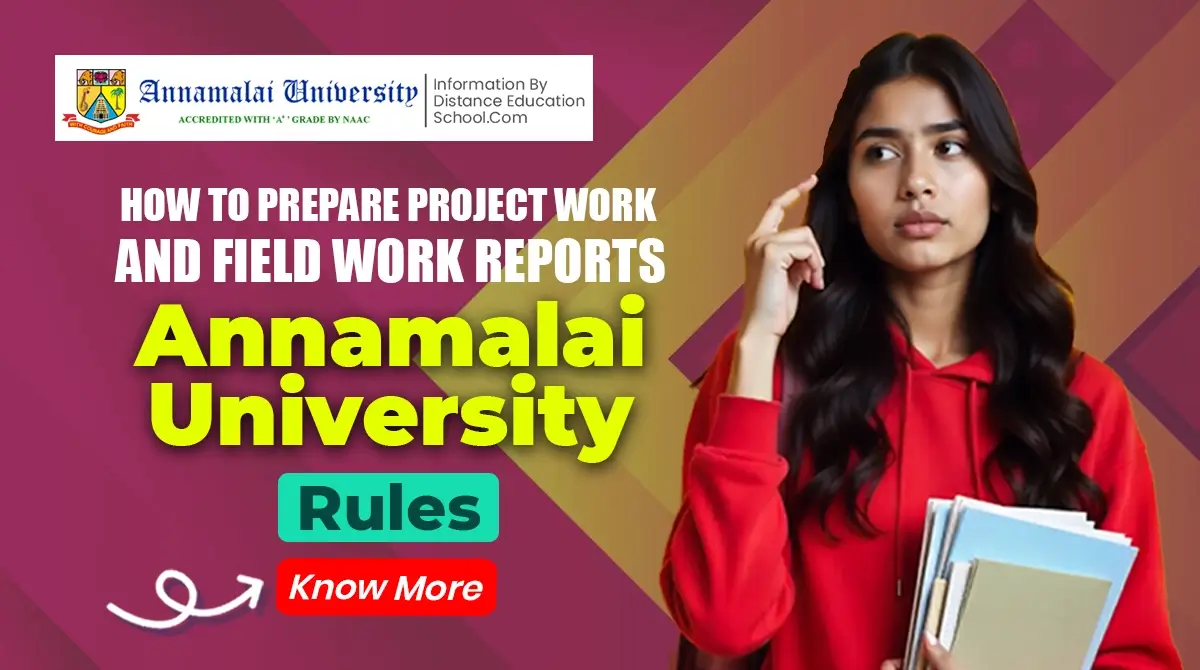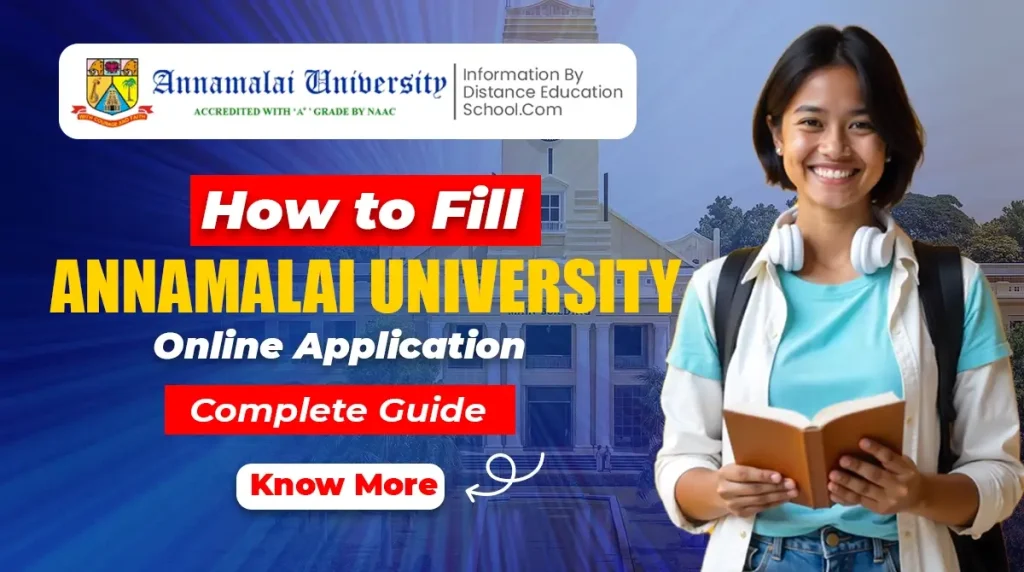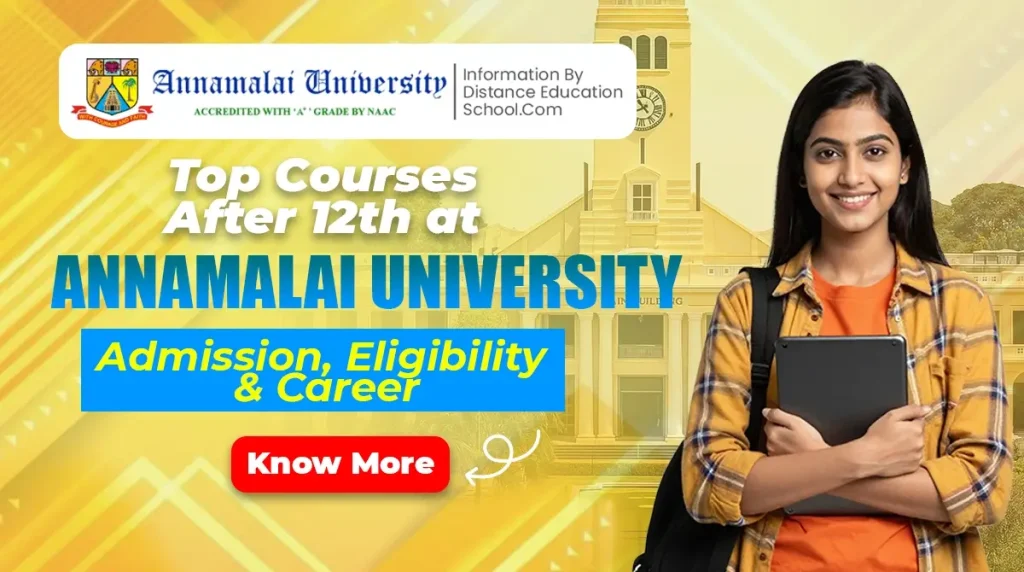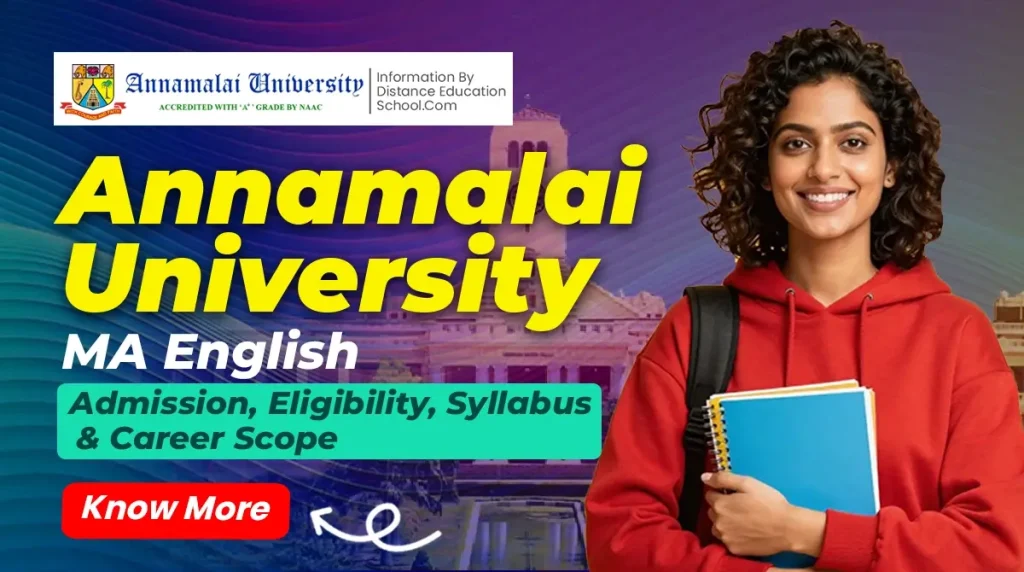
How to Prepare Project Work and Field Work Reports – Annamalai University Rules
Project work and field work are a key part of many courses at Annamalai University. They allow students to show what they have studied, use their knowledge in real situations, and share their results in a proper way. To keep everything fair, the university has fixed rules and formats for writing and submitting these reports.
This guide will help students step by step in preparing their project and field work reports. It explains topic approval, report structure, formatting, submission, and evaluation as per the university rules. For the latest updates, students should always visit the official page: AUDDE Project Guidelines.
Why Project and Field Work Reports Matter
- They check how well you can use what you learned in real life.
- They highlight your skills in research, analysis, and writing.
- They are included in your course marks and add to your credits.
- A good report helps you score better in your studies.
Getting Started
- Approval of Topic and Proposal
- You need to prepare a short plan (called a synopsis) with the title, purpose, problem to be studied, and research method.
- This proposal must be sent to the Directorate for approval.
- If you are doing field work, you also need permission for the agency where you will complete your practical training.
- Choosing a Supervisor
- Every student must have a supervisor to guide the project or field work.
- The supervisor should have the required qualifications as per university rules.
- You must also submit your supervisor’s details (bio-data) for approval.
- A single supervisor cannot guide too many students at once.
Structure of the Report
Annamalai University Distance Education has a proper format for writing project work and field work reports. It is very important to follow this format, because reports without the correct structure may get rejected.
Cover and Front Pages
- Cover Page: Must show the project title, student’s name, enrolment number, program, department, and year.
- Title Page: A detailed version of the cover page inside the report.
- Student’s Declaration: A signed note from the student confirming the work is original and not copied.
- Supervisor’s Certificate: A signed certificate from the supervisor stating the report is genuine.
- Acknowledgment: A short note to thank people or institutions who helped.
- Table of Contents: A list of chapters with page numbers.
Main Chapters
- Introduction: Background, reason for choosing the topic, and a short summary of the study.
- Review of Literature: A summary of past studies and theories related to your topic.
- Objectives: The aims or goals of the project or field work.
- Methodology: How the study was done, including tools, techniques, and sample size.
- Data Analysis and Findings: Data collected shown in tables, graphs, or charts with clear explanation.
- Discussion: Explanation of results and comparison with your objectives or other studies.
- Conclusion and Recommendations: Main points and suggestions based on your findings.
Final Sections
- Bibliography / References: A list of books, articles, and websites used.
- Appendices: Extra material like questionnaires, raw data, or supporting documents.
Formatting Rules
- Reports should be typed clearly on A4-size paper with double spacing.
- The length of the report is usually 60 to 120 pages for project work and 40 to 80 pages for field work.
- Every page must be numbered. The first few pages, like acknowledgments, can have Roman numbers (i, ii, iii), while the main chapters should use normal numbers (1, 2, 3).
- All tables and pictures must have proper titles and should be mentioned in the text.
- The report should be hard bound with a laminated cover. Spiral binding or loose sheets are not allowed.
Special Rules for Field Work Reports
Field work is a part of Social Work and similar courses. For this, students must work in an approved agency. They also need a field work supervisor who is qualified and experienced. After completing the work, students have to submit an attendance certificate from the agency, which confirms the number of days they worked (for example, at least 20 days). The field work report should cover case studies, group tasks, observation notes, and real experiences gained during the training.
Submission Guidelines
- A copy of the approved project proposal.
- Supervisor’s bio-data and signed certificate.
- Agency approval form (for field work students).
- Attendance certificate from the field work agency.
Evaluation Process
- The report is checked by outside examiners and may also include a short oral exam (viva).
- Marks are given based on the content, method used, analysis, presentation, and originality.
- For field work, your attendance and practical work in the agency are also counted.
- If the report is copied, badly written, or missing required certificates, it can be rejected.
Tips to Score Well
- Choose a topic that is small and easy to finish within your time and resources.
- Start your work early and note all important dates.
- Talk to your supervisor regularly and follow their advice.
- Gather data step by step and keep everything safely recorded.
- Write in clear and simple academic language. Do not copy from others.
- Use the same format and rules given by Annamalai University.
- Get ready well for the viva voce exam.
Common Mistakes to Avoid
Some common mistakes students make are:- Giving reports without the supervisor’s signature.
- Picking topics that are too wide or difficult to complete.
- Submitting reports late and then paying extra late fees.
- Not following basic rules like binding, page numbers, or adding proper references.
- Copying content from the internet instead of writing in their own words.
Using the Official Project Page
- Rules and instructions for different courses.
- Important last dates for submitting reports.
- Sample formats for proposals, certificates, and approvals.
- Contact information in case they need help or have questions.
Conclusion
Making project work and field work reports at Annamalai University is not only about research but also about following the rules carefully. Students should get their topics approved, take guidance from a qualified supervisor, write in the correct format, and submit the report on time.
If they focus on writing original content, keeping it clear, and adding proper details, their reports will match the university standards and show their effort and learning.
For the latest and correct rules, students should always check the official page: Annamalai University Project Guidelines.





